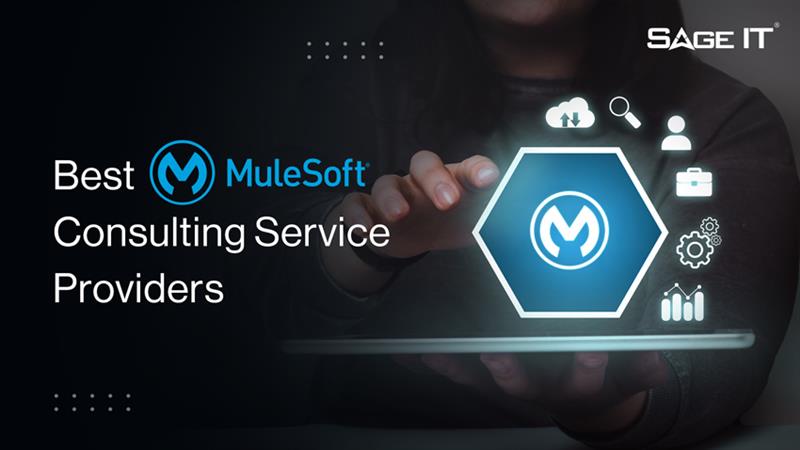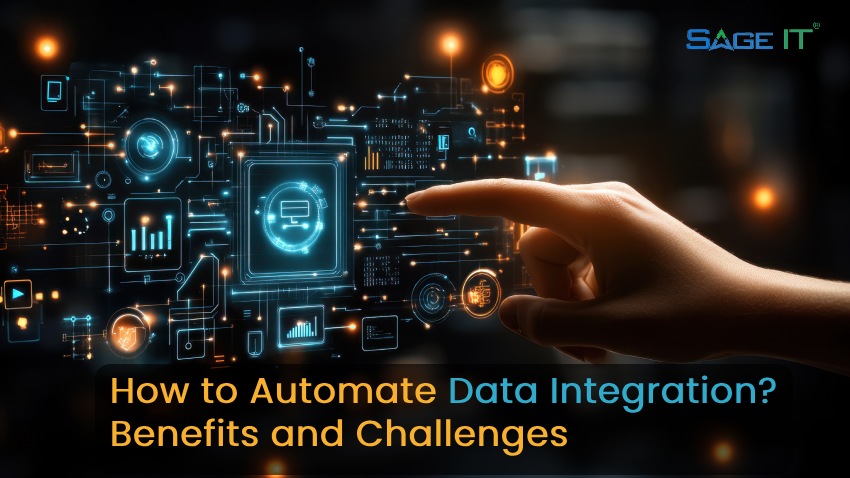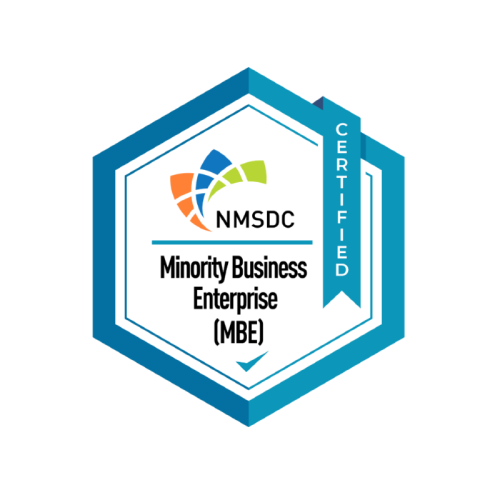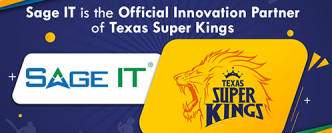According to MIT’s GenAI Divide report, 95% of generative AI pilots at enterprises are failing to deliver measurable impact. Only a handful of companies are moving beyond pilots to revenue growth, while the vast majority stall due to flawed integration, poor adoption, and misaligned investments.
The issue isn’t the technology itself. Models like GPT or Claude are powerful, but without the right strategy, governance, and integration expertise, they often sit unused or underperform. Leaders are discovering that buying tools alone doesn’t create value, what’s missing is a roadmap that connects AI capabilities to real business outcomes.
That’s where an AI consulting company comes in. By bridging the gap between potential and execution, consultants help organizations cut through hype, identify high-impact use cases, and deploy solutions responsibly.
In this guide, you’ll learn what AI consulting is, what consultants actually do, when to hire one, the risks of going solo, and how to choose the right partner to ensure your AI investment doesn’t end up in the 95% failure bucket.
What Is AI Consulting?
AI consulting is the practice of helping businesses identify, design, and implement artificial intelligence solutions that align with their goals. Consultants assess readiness, create AI roadmaps, and guide adoption, from proofs of concept to full deployment, ensuring the technology delivers measurable ROI while addressing governance, compliance, and change management challenges.
AI consulting bridges the gap between complex data science and practical business strategy, making artificial intelligence a reliable driver of growth and innovation.
What Does an AI Consultant Do?
An AI consultant translates complex artificial intelligence technologies into practical business strategies. Their first role is to assess your organization’s readiness, evaluating data quality, systems, and team maturity. They then identify high-impact use cases, from automating manual workflows to building predictive analytics or generative AI copilots.
Beyond strategy, consultants design a roadmap with clear milestones, KPIs, and governance guardrails. They often create proofs of concept to validate value quickly before scaling solutions. Once models are deployed, AI consultants ensure integration with existing systems, monitor performance, and retrain models to stay accurate.
Crucially, they act as change agents, educating stakeholders, managing resistance, and aligning AI adoption with business goals. The deliverables you can expect include an AI opportunity matrix, readiness scorecard, roadmap, and governance framework. In short, an AI consultant doesn’t just recommend tools; they deliver measurable business outcomes and sustainable transformation.
When Should You Hire an AI Consultant?
You should consider hiring an AI consultant when your business faces growth challenges, data overload, or increasing pressure to innovate but lacks the in-house skills to execute effectively. Common triggers include disconnected systems, rising operational costs, or uncertainty about which AI tools will truly deliver ROI.
Organizations often bring in consultants when scaling exposes bottlenecks. For example, a fintech platform processing thousands of loan applications may need AI to automate decision-making while staying compliant. Similarly, an eCommerce brand wanting to personalize recommendations may lack the technical talent to build secure generative AI models.
AI consultants are also valuable when leadership teams are asking questions like “Where do we start?” or “How do we measure ROI safely?” At this stage, expert guidance helps you avoid blind investments, reduce risk, and focus resources on the initiatives that create measurable business value.
The AI Consulting Process (End-to-End)
A successful AI consulting engagement follows a structured but flexible journey designed to minimize risk and accelerate results. The process typically unfolds in five stages:
1. Discovery & Assessment
Consultants evaluate your current data, systems, and team maturity. This phase produces a readiness scorecard and highlights gaps.
2. Strategy & Roadmap
Together, you define OKRs, prioritize use cases, and design a phased roadmap with clear KPIs, governance, and budget guidelines.
3. Proof of Concept (PoC)
Small-scale pilots test high-value opportunities in a controlled environment. Early results validate assumptions and refine the business case.
4. Implementation & Integration
Consultants help deploy models into workflows, integrate with existing tech stacks, and align employees through training and change management.
5. Ongoing Monitoring & Optimization
Using MLOps practices, consultants track model performance, address drift, and retrain systems to ensure long-term ROI.
Costs & ROI: What to Budget and How to Measure Value
The cost of AI consulting depends on your project scope, data maturity, and desired outcomes. Engagements typically start with discovery workshops and assessments, ranging from modest investments for small pilots to larger budgets for enterprise-scale deployments. Factors influencing cost include data quality, integration needs, security requirements, and whether you need custom models versus off-the-shelf tools.
While costs vary, ROI is the real measure. Successful AI consulting projects consistently deliver efficiency gains, cost reductions, and revenue growth. For example, automation in insurance claims processing can cut handling times by up to 50%, enabling settlements in days instead of weeks.
This efficiency not only speeds up customer service but also reduces operational costs by 20–30% through less manual data entry and faster approvals. Similarly, predictive analytics can improve sales forecasting accuracy by 35% or more.
A strong consulting partner will also define KPIs from day one, tracking adoption rates, cycle-time improvements, customer satisfaction, and payback period. This ensures you see not only technical success but also measurable business value, often achieving positive ROI within the first 12–18 months.
AI Use Cases by Industry (Fast Wins & High-Leverage Examples)
AI consulting delivers the most impact when tailored to industry-specific challenges. Here are examples of how organizations are already using AI to drive measurable value:
By working with an AI consultant, businesses can identify which use cases align with their data, systems, and goals, avoiding hype and focusing on initiatives that generate tangible ROI.
Risks & Responsible AI (Governance, Privacy, Bias & Model Risk)
Adopting AI without a clear governance framework exposes organizations to unnecessary risk. Common challenges include data privacy issues, algorithmic bias, lack of transparency, and model drift, all of which can erode trust and damage brand reputation if unmanaged.
A strong AI consulting engagement establishes Responsible AI policies from the start. These include guidelines for acceptable use, human-in-the-loop decision-making, and strict controls around sensitive data. Consultants also implement monitoring systems to detect bias, track performance, and retrain models as business conditions evolve.
Compliance is equally critical. Regulations such as GDPR, CCPA, and upcoming state-level AI acts require documented risk assessments, data handling policies, and clear accountability structures. A consultant ensures your strategy not only accelerates growth but also passes audits and builds stakeholder confidence.
By embedding governance into your AI roadmap, you minimize exposure while unlocking innovation, balancing speed with control in a way that sustains long-term ROI.
AI Consulting vs Buying Off-the-Shelf Tools
Buying AI software off the shelf may solve a single, isolated problem, but it rarely addresses the bigger picture. Generic tools often lack customization, struggle to integrate with legacy systems, and leave teams without the training or governance needed to use them effectively.
By contrast, an AI consultant takes a strategic, end-to-end approach. They align technology with your business goals, design a roadmap, and manage implementation so solutions fit seamlessly into your workflows. Consultants also provide governance frameworks and change-management support, ensuring adoption sticks.
Think of it this way: buying software is like purchasing tools, while hiring an AI consultant is like bringing in an architect. The latter ensures your investment builds something scalable, secure, and capable of driving measurable business outcomes.
| Aspect | Buying Off-the-Shelf AI Tools | Working with an AI Consultant |
| Scope | Solves one isolated problem | Aligns AI with overall business goals & strategy |
| Customization | Limited; generic functionality | Tailored to workflows, industry, and compliance needs |
| Integration | Often difficult to connect with legacy systems | Designed to fit seamlessly into your tech stack |
| Governance & Ethics | Little or no built-in governance | Governance frameworks + Responsible AI policies included |
| Change Management | Teams left to figure it out | Training, stakeholder alignment, and adoption support |
| Scalability | Fixed; may not adapt as business grows | Roadmap-driven, scalable, and future-ready |
| Outcome | Tools purchased but underutilized | Measurable ROI, sustainable adoption, reduced risk |
| Analogy | Like buying tools without a plan | Like hiring an architect to design & build effectively |
How to Choose an AI Consulting Partner
Selecting the right AI consulting partner goes beyond flashy credentials, it requires alignment with your industry, strategy, and long-term vision. Here are six factors to evaluate:
Pro tip: Use a simple scorecard (0–5 scale) across these dimensions to compare vendors objectively. The right consultant won’t just implement AI, they’ll help you build sustainable business value.
For a deeper breakdown of selection criteria, see our “how to choose the AI consulting service”
Why Sage IT Is the Right AI Consulting Partner for You
By now, you’ve seen what AI consulting is, how it works, and the impact it can have on growth, efficiency, and innovation. The final question is not if you need AI consulting, it’s who can help you unlock its full value.
Sage IT stands apart because we don’t just deliver AI solutions, we help you create an AI ecosystem that is scalable, governed, and aligned with your business strategy. Our approach combines:
At Sage IT, AI consulting is not about experiments, it’s about creating measurable business outcomes. If you’re ready to turn AI from an idea into a competitive advantage, our team can help you move with clarity, confidence, and speed.
FAQs
AI consulting helps businesses identify opportunities for artificial intelligence, design a roadmap, and guide implementation. Consultants assess data readiness, run proofs of concept, and ensure responsible deployment, so AI delivers measurable ROI rather than hype.
Pricing varies based on project size, data complexity, and scope. Small discovery workshops may cost modestly, while enterprise programs require larger investments. Most firms expect positive ROI within 12–18 months through efficiency gains and revenue growth.
A proof of concept typically runs 6–12 weeks. The timeline depends on data availability, integration needs, and testing scope. Consultants design pilots to validate value quickly before scaling solutions across your organization.
AI is more likely to augment work than replace it. By automating repetitive tasks, it frees employees to focus on strategy, problem-solving, and innovation, enhancing productivity while creating higher-value roles.
Success is tracked through KPIs such as cycle-time reduction, improved forecasting accuracy, customer satisfaction, and ROI. Consultants set these metrics upfront to ensure progress aligns with your business objectives.












